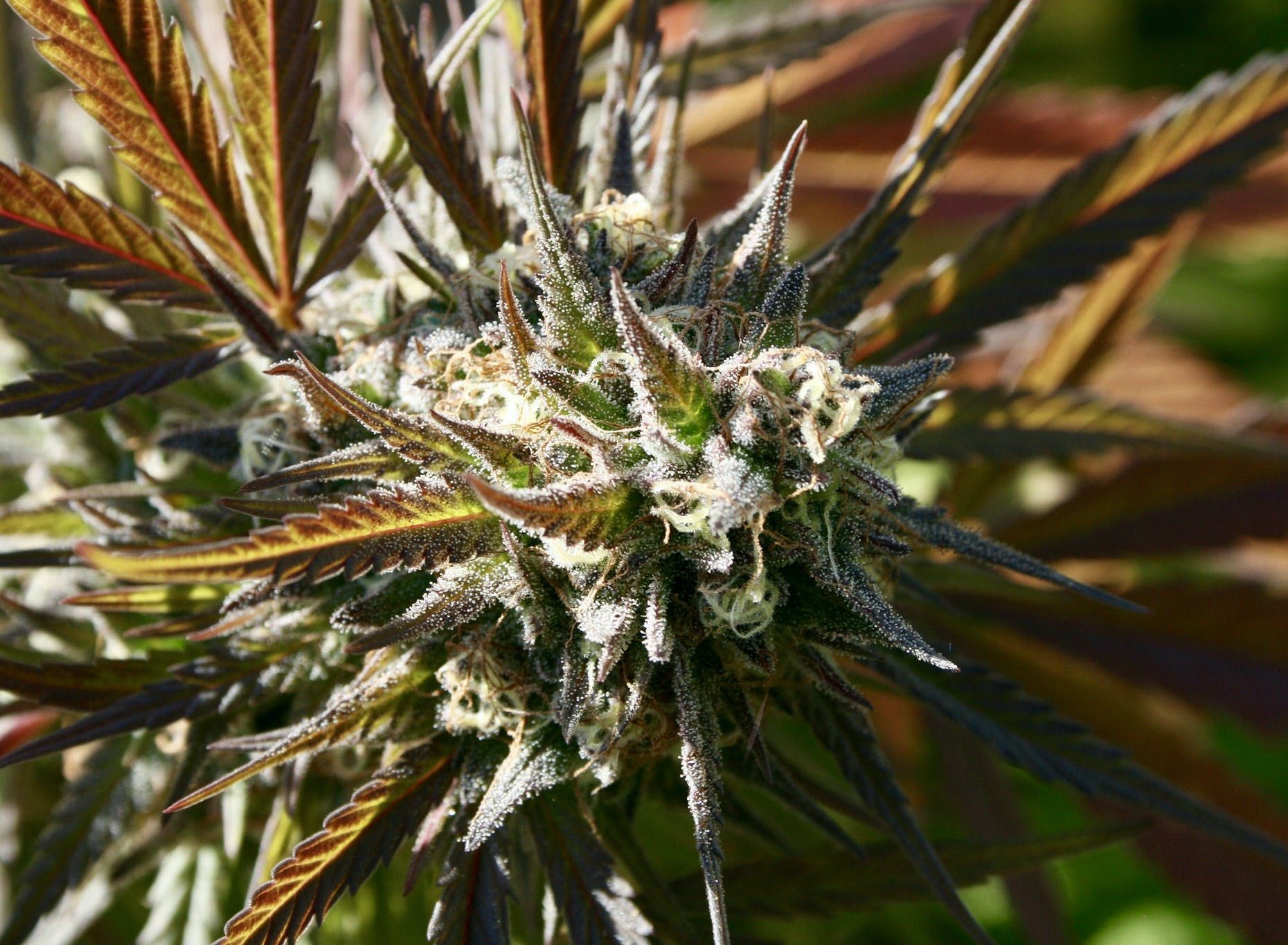When people talk about the effects of cannabis, they sometimes discuss the plant as if it were only made up of one chemical. In reality, each marijuana plant has hundreds of different chemicals, which include cannabinoids and terpenes. These all work together to create the effects we experience. While it’s a team effort, when it comes to both marijuana research and marketing, it seems like the only cannabinoids you hear about are tetrahydrocannabinol (THC) and cannabidiol (CBD). While these two cannabinoid superstars are both highly potent and effective medicines, there are many more compounds to explore in the cannabis universe.
Today, we turn our attention to a cannabinoid that’s starting to grow in popularity: delta-8 THC. What is this cannabinoid that we’ve heard so little about? And how can we use it to improve our own medicinal marijuana experience?
FOLLOW US ON FACEBOOK & INSTAGRAM
What’s the Difference Between Delta-8 THC & Delta-9 THC?
Delta-8 THC isn’t the THC that’s so often referenced in the cannabis world. When people talk about THC they usually mean delta-9 THC, the highly potent and psychoactive compound that’s found in high quantities in cannabis (once it’s been activated with heat). When you smoke or vape cannabis, delta-9 THC provides the majority of the psychoactive effects, and many of the medicinal ones, too.
Delta-8 THC is an analogue of delta-9 THC—a chemical with a similar structure—but it has differences as well. Like delta-9 THC, this cannabinoid binds easily to the CB1 receptor in the central nervous system. It provides an array of medicinal effects like relief from nausea, pain and anxiety, as well as neuroprotection for the aging brain. It has also been found to effectively bind to the CB2 receptor.
Like delta-9, delta-8 THC is also psychoactive. Still, researchers say that it has less psychoactive potency than its analogue delta-9. It appears to offer a more clear-minded experience with less anxiety. In general, research suggests that delta-8 has about two-thirds of the potency of delta-9.
Unlike delta-9 THC, which in some strains can be found in percentages as high as 25%, delta-8 THC is found in very low amounts in cannabis. Usually this only makes up about 0.01% of the plant. Still, when isolated in a pure delta-8 THC extract, the cannabinoid has some important medicinal effects.
Delta-8 THC for Nausea & Appetite
One of the most well-established uses of delta-8 THC is as an anti-emetic (nausea reducer) and appetite stimulant. In fact, there are already U.S. patents on its use as an anti-emetic. This solution is particularly helpful for patients undergoing treatment for cancer who often experience nausea. It has also been indicated as especially well suited for children.
In one study, researchers gave delta-8 THC to children ages 3–13 who were going through cancer treatments. Those taking delta-8 THC were able to stop vomiting and had improvements in their nausea levels. Interestingly, researchers also found that these children didn’t experience any psychoactive effects as a result of taking delta-8 THC. While adults usually experience mild psychoactive effects with delta-8 THC, the children in this study seem to be immune from that particular effect.
In a similar vein, delta-8 THC has also been shown to improve appetite. One study using animal models found that delta-8 THC improved appetite in mice. While this works in a way similar to how delta-9 THC increases appetite, the study found that between the two, delta-8 THC was actually more effective as an appetite stimulant.
Delta-8 THC for Cancer
Delta-8 THC has also been researched for potential uses against cancer itself. One study looked at mice infected with lung cancer. Those who had been treated with delta-8 THC for a period of 20 days actually had reduced tumor sizes by the end of their treatment. Researchers also found that survival time went up when mice with cancer were treated with delta-8 THC.
Unfortunately, little follow-up research has taken place after this important study was published in 1975. We need to do more research to know exactly how we might effectively use delta-8 THC during cancer treatment. While there’s much research left to do before we can confidently treat cancer with delta-8 THC, these results offer hope that this cannabinoid could be helpful in the ongoing fight against this disease.
Delta-8 THC for Memory
In addition to treating appetite, nausea and potentially cancer, delta-8 THC may also be a helpful neuroprotectant. This is an exciting advancement for those suffering from dementia and Alzheimer’s disease. One study found that mice treated with delta-8 THC actually increased their levels of acetylcholine in the brain. This important neurotransmitter plays a key role in learning and memory. Because lower levels of acetylcholine are associated with Alzheimer’s disease, some believe that delta-8 THC has the potential to prevent, or maybe even reverse, this condition.
As with cancer, more research is needed to confirm these findings and develop treatment protocols. But there’s hope that delta-8 THC may become an effective treatment for dementia.
How to Use Delta-8 THC
Finding delta-8 THC products is easier said than done. You can’t simply get a high delta-8 THC strain since the cannabinoid occurs in such low quantities in natural cannabis. There simply aren’t any strains that will give you noticeable effects from the delta-8 THC.
Still, in California, and other western states that have well-developed cannabis industries, products with delta-8 THC extracts are becoming more readily available. The best delta-8 THC products are extracts that you can use with a vaporizer, or sublingual options which can be absorbed under the tongue. California brand Level has come up with a delta-8 THC tablingual
Edibles designed to be eaten (rather than held under the tongue) should be avoided since delta-8 THC actually converts into delta-11 THC when processed through the digestive tract. Since delta-9 THC also converts into delta-11 THC when eaten, there’s no special benefit to eating delta-8 THC.
If you’re interested in consuming delta-8 THC for your medical needs, the best first step is to talk to a nurse or doctor with cannabis expertise. Your doctor can help go over your current conditions and let you know what cannabis options are best suited to you. Need to find a cannabis health professional? You can video-chat with HelloMD’s knowledgeable doctors from the comfort and privacy of your own home.
Photo credit: Brian Shamblen
If you’re new to cannabis and want to learn more, take a look at our Cannabis 101 post. HelloMD can help you get your medical marijuana recommendation; it’s easy, private and 100% online.






